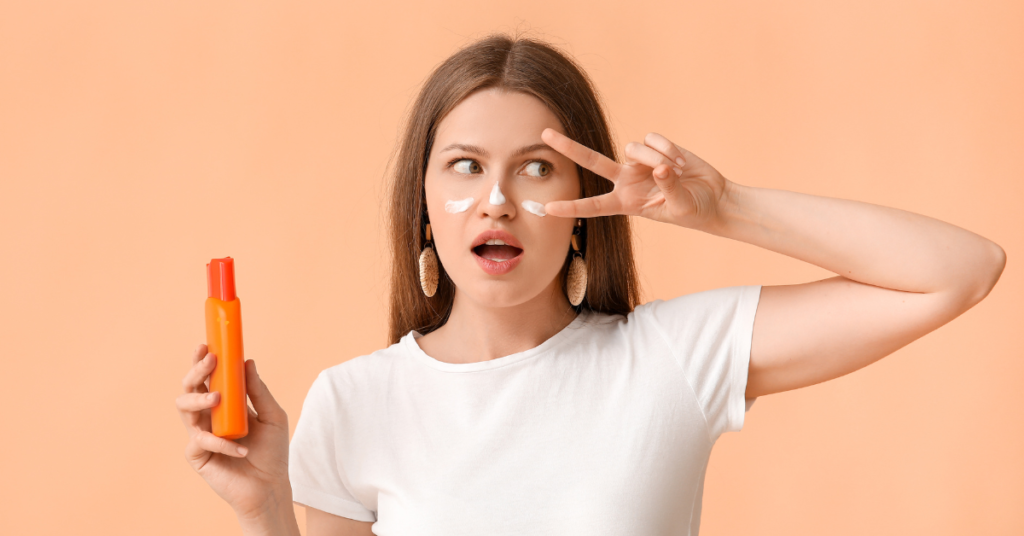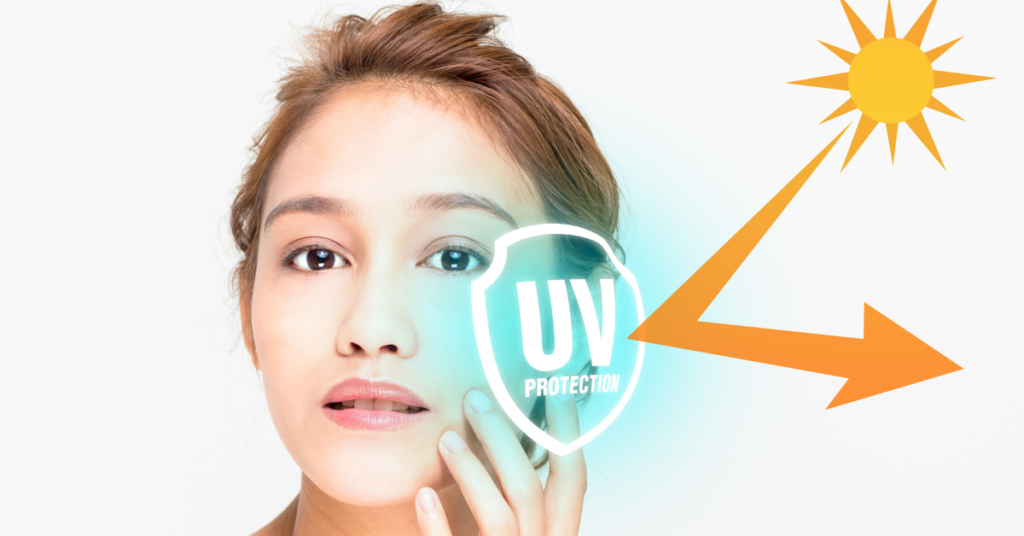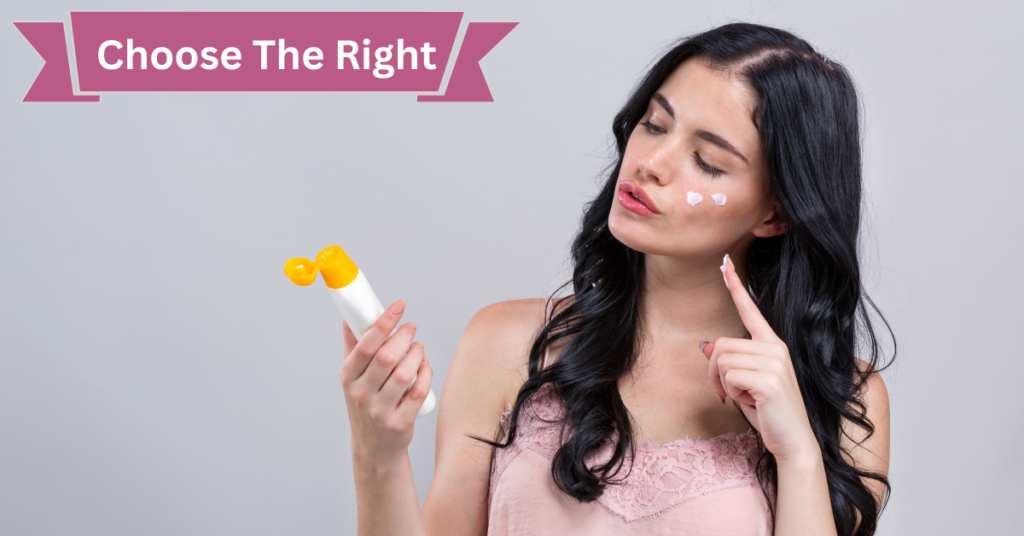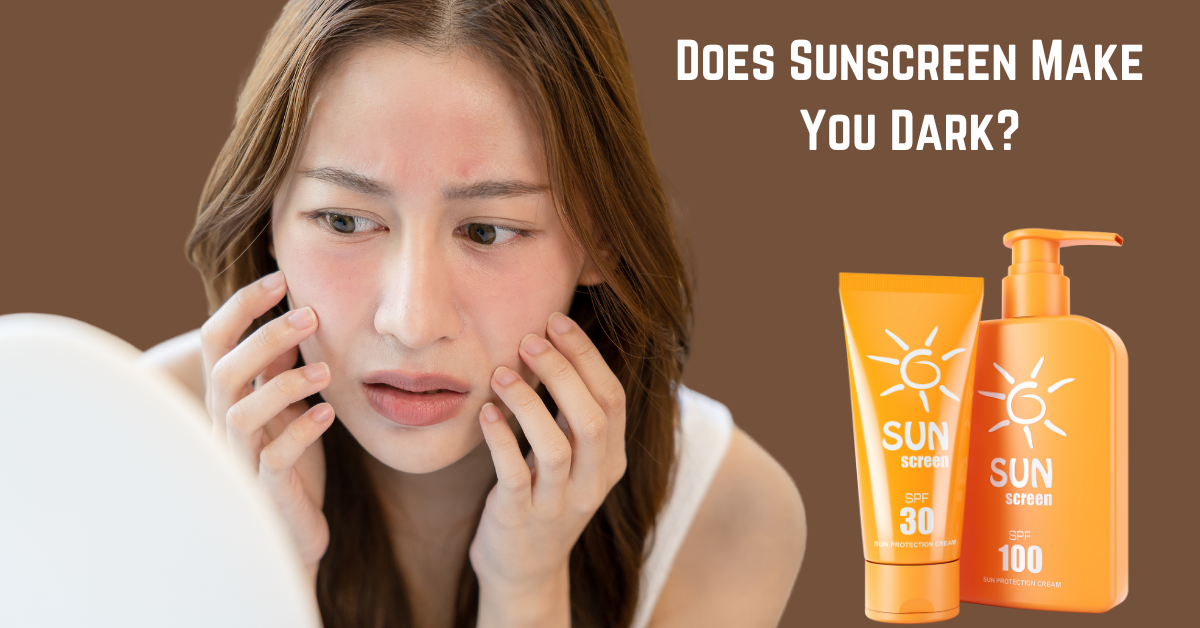Sunscreen is essential for protecting your skin from the sun’s harmful rays. Your skin faces ultraviolet (UV) rays every time you step outside. These can cause sunburn and long-term problems, like skin cancer. Lots of folks still ask: Does sunscreen make your skin darker? This question needs to be clarified & corrected info. In this article, we’ll dig into sunscreen’s impact on skin color, clear up myths, & share tips for great sun protection. If you learn how to use sunscreen the right way, you can enjoy being outdoors while keeping your skin healthy and shiny!
Table of Contents
How Does Sunscreen Work?
To understand sunscreen, we must know how it works. It protects your skin from those dangerous rays from the sun. The sun sends out UV rays that can harm your skin. They can lead to sunburn and issues like dark spots, wrinkles, and even skin cancer. Think of sunscreen as a shield blocking these rays from getting to your skin.
There are two main types of sunscreen:
- Physical (Mineral) Sunscreens: Have ingredients like zinc oxide and titanium dioxide. They stay on top of your skin & reflect UV rays away!
- Chemical Sunscreens: These absorb UV rays and turn them into harmless heat before they damage your skin. Some well-known ingredients are avobenzone & oxybenzone.
Both kinds protect your skin but work in different ways.
Does Sunscreen Make You Dark? Myths, Facts, & Tips Revealed!
One big myth says that sunscreen makes your skin darker. But that’s not true! Sunscreen helps stop your skin from getting darker by blocking the harmful UV rays that cause tanning.
So why do some people think it darkens their skin? Here are a few reasons for this myth:
- Oxidation: Some sunscreens might react with air and look a bit darker. This can make your skin seem tanned for a moment but doesn’t mean it’s changing color.
- Wrong SPF: Using a lower SPF (sun protection factor) might not keep out all the UV rays. This could cause tanning or dark spots while still using sunscreen.
- Improper Use: Many forget to apply enough sunscreen or don’t reapply it often enough! If it wears off, your skin can get exposed to the sun again, leading to tanning.
Other Myths About Sunscreen and Darkening Skin

Let’s set straight some other common myths around sunscreen:
◈ Myth 1: Sunscreen Stops Vitamin D Production
Some think using sunscreen means you can’t get enough vitamin D from sunlight. While it blocks some UV rays, it doesn’t stop all of them! You can still enjoy sunlight & make vitamin D. Plus, you can get vitamin D from food or supplements! So don’t skip out on sunscreen!
◈ Myth 2: Dark Skin Doesn’t Need Sunscreen
The idea that people with darker skin don’t need sunscreen isn’t true! Yes, melanin offers some protection! But it’s not enough against harmful UV rays. Folks with darker skin can still burn or face risks like hyperpigmentation & even skin cancer.
◈ Myth 3: Sunscreen is Only for Outside
lot of people think they only need sunscreen when outside in the sun! But guess what? UV rays can sneak through windows, so you can still get exposure indoors especially if you’re sitting by a window or driving!
◈ Myth 4: Higher SPF Means No Tanning
Some believe super-high SPF will completely block tanning. Although higher SPF gives more protection, no sunscreen blocks 100% of UV rays! If you stay in the sun too long (without reapplying), you may still tan a little.
Why Skin Might Look Darker After Using Sunscreen
While sunscreen doesn’t cause darkening, sometimes after putting it on, your skin might look different. Here’s why:
- Sunscreen Oxidation: Some chemical sunscreens might react with air and give a slight tan look temporarily until washed off.
- White Cast from Physical Sunscreens: Physical brands can sometimes leave a white cast, especially on darker tones which makes the skin look duller but doesn’t change its real color.
- Skin Reacting to the Sun: If you’re not using enough or reapplying your sunscreen regularly, UV rays might get through and lead to tanning.
Physical vs Chemical Sunscreens: Effects on Skin Tone
When choosing between physical & chemical sunscreens, folks often wonder which suits them better:
- Physical Sunscreens: Sit on top and may leave a white or grayish cast but are gentle for sensitive skin.
- Chemical Sunscreens: Blend into the skin easily without leaving a cast; however, some sensitive skins might react badly.
For darker tones, tinted physical sunscreens or chemical ones could be best to avoid the white cast.
The Role of UV Exposure in Tanning & Hyperpigmentation

Tanning happens when your skin produces extra melanin as protection against those bad UV rays. Hyperpigmentation is when certain parts of the skin become darker due to sun exposure or things like acne.
Sunscreen helps prevent both tanning & hyperpigmentation by blocking the UV rays that trigger melanin production. But remember if you don’t apply enough or forget to reapply it you might still tan or get dark spots.
Tips to Prevent Darkening from Sun Exposure
Here are easy tips to keep your skin from darkening under the sun:
- Reapply Regularly: Put on fresh sunscreen about every two hours—the same goes for swimming or sweating!
- Use Broad-Spectrum: Choose broad-spectrum stuff that protects against UVA & UVB rays—at least SPF 30 for daily use!
- Avoid Noon Sun: Try not to be out between 10 a.m. & 4 p.m. that’s when those harmful rays are strongest!
- Wear Protective Gear: Hats and sunglasses plus long-sleeved outfits help shield from sunlight!
- Add Antioxidants: Products like vitamin C help protect against free radicals caused by sun exposure.
- Seek Shade: Whenever possible stick close to shade—this helps avoid direct sunlight too.
Choosing the Right Sunscreen for Your Skin Type

Picking good sunscreen is key! Check out these tips:
- For Oily Skin: Go for oil-free sunscreens that won’t clog pores!
- For Dry Skin: Look for hydrating brands with glycerin or hyaluronic acid.
- For Sensitive Skin: Physical sunscreens tend to be less irritating than chemical ones!
- For Darker Tones: Try tinted or chemical options so you don’t get that unwanted white cast!
Conclusion
In short, sunscreen isn’t making your skin darker at all! It protects against sun damage like dark spots and tanning! Myths about its effects like causing darkening or being unnecessary based on color are just that a myth! Everyone should wear it every day to keep their glow going strong!
Remember this it’s just one part of keeping safe under the sun! Pair it with good habits like wearing cover-ups or staying out during peak hours & reapplying often! Follow these steps to keep safe while avoiding unwanted darkness under the sun!
More Interesting: Discover The Hidden Face Wash Benefits for Youthful, Glowing Skin!
FAQS
Does sunscreen improve my tone?
No, not really but it prevents darkening caused by sun exposure! Protecting keeps up an even color over time!
Can I remove my tan with sunscreen?
Nope, it won’t wipe off a tan but stops more tanning or darkening from happening! To lessen a current tan try exfoliating stuff along with regular use!
Do I need daily usage?
Absolutely even on cloudy days & when inside because those sneaky UVs sneak through windows too! Daily wear saves against damage risks!
Can I put on just sunscreen without moisturizer?
Yes, but only if it’s hydrating enough already! Those with dry skin should use moisturizer first for extra moisture then layer on their sunscreen!

